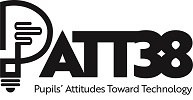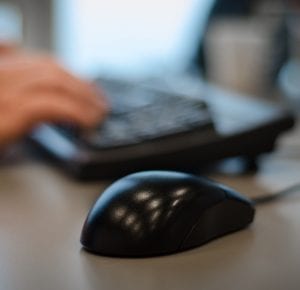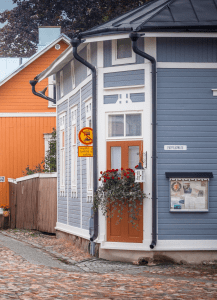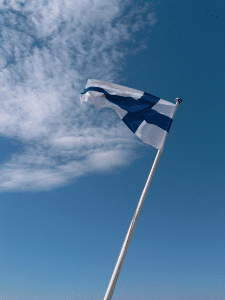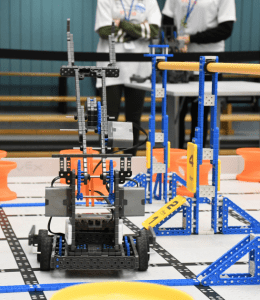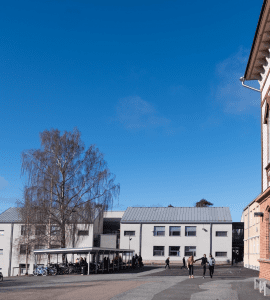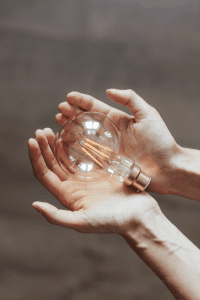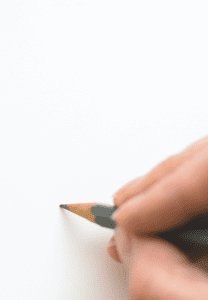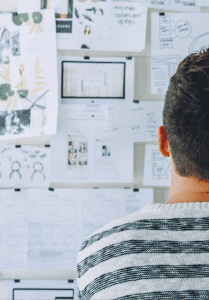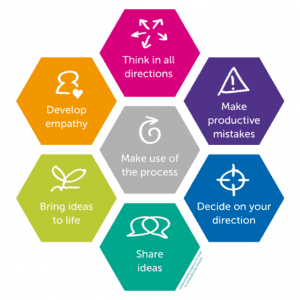You can find more information and the parallel session programme from beneath the programme.
The conference was held completely online via Zoom.
THE PROGRAMME IS IN UTC±00:00 (See the current UTC±00:00 time here)
(Download the programme as an .ics file for your calendar.)
| PATT38 PROGRAMME | TUESDAY 27TH APRIL |
WEDNESDAY 28TH APRIL |
THURSDAY 29TH APRIL |
FRIDAY 30TH APRIL |
| 10:00 AM – 11:00 AM (UTC±00:00) |
Conference Q&A Information Desk |
Lecture + questions and discussion: Introduction of the Finnish educational system, teacher education and craft, design and technology education (10:00 AM – 11:30 AM) |
Presenting the Rauma Teacher Training School + questions and discussion (10:00 AM – 10:50 AM) |
Research and Development Projects on the show (10:00 AM – 12:00 AM) |
| Break (10:50 AM – 11:00 AM) |
||||
| 11:00 AM – 01:00 PM (UTC±00:00) |
Welcome to PATT38 Opening words, Get together in breakout rooms, Comment wall, Practical info & more! |
Presenting CDT Teacher Education + questions and discussion (11:00 AM – 12:00 PM) |
||
| Physical exercise 1 (11:30 AM – 11:45 AM) |
||||
| Educational Robotics on the show (11:45 AM – 01:00 PM) |
Physical exercise 2 (12:00 PM – 12:15 PM) |
|||
| Presentation of Journal Theme Issues of PATT38 Conference (12:15 PM – 01:00 PM) |
||||
| Closing of the Conference (12:00 PM – 01:00 PM) |
||||
| 01:00 PM – 02:00 PM (UTC±00:00) |
Lunch break | Lunch break | Lunch break | Lunch break |
| 02:00 PM – 03:30 PM (UTC±00:00) |
Parallel Sessions S1, S2, S3 |
Parallel Sessions S7, S8, S9 |
Parallel Sessions S13, S14, S15 |
Workshop on Make Design Learning Visible Formative Assessment within Design and Technology Education (For those who have registered to the workshop) |
| 03:30 PM – 04:00 PM (UTC±00:00) |
Break for refreshments and Music | Break for refreshments and Music | Break for refreshments and Music | |
| 04:00 PM – 06:00 PM (UTC±00:00) |
Parallel Sessions S4, S5, S6 |
Parallel Sessions S10, S11, S12 |
Parallel Sessions S16, S17 |
Breaks with short and light physical exercises were offered for the well-being of the attendees. For them, The Rauma Teacher Training School’s PE-teachers provided our conference with two excellent physical exercise videos. The videos were presented during the two Physical exercise breaks and accounted for different types of movers to make the exercises enjoyable and accessible to a wide audience.
The PATT38 Sauna in Zoom and The PATT38 Coffee Room in Wonder offered attendees a chance to interact freely with both familiar and new colleagues alike. In Wonder attendees can also meet after the conference and form conversation groups organically in a virtual space. Link to Wonder will be in the version of Conference Guide that will be emailed to the participants and also in the linktree under the sensitive links (to which a password was emailed to the registered participants).
A video presenting the music education in the Finnish schools and its history through short excerpts and music was played during some of the breaks in its designated breakout room. The video was produced by the Semppu Ensemble ry, student’s hobby organization focusing on music here at the Rauma Campus of the University of Turku, and titled The History of Music in Finnish school system.
|
Conference Q&A – Information Desk Moderators of the PATT38 Conference Test out your conference setup and get familiar with the Zoom software. The moderator team will be there to help you out. Alternatively you can go straight to the coffee room and have a chat!
Welcome to PATT38 Various speakers Welcome greetings and opening statements from the conference and the conference partners. Opening discussion of the conference. General instructions for joining the online conference. Welcome to PATT38: Professor Eila Lindfors, University of Turku, Chair of the PATT38 Conference Opening statements:
Get Together Party in “Sauna” breakout rooms. Presentations:
Lecture + Questions and Discussion The professor of craft, design and technology education Eila Lindfors In the beginning of the second day the conference participants have an opportunity to join in a keynote lecture, held by professor Eila Lindfors (University of Turku), and discuss about the Finnish education system, teacher education and Craft, Design and Technology Education as a subject in the Finnish basic education. The Finnish Education system offers equal opportunities: it ensures education for all. There are very few private schools in Finland. Education from pre-primary to higher education is free of charge.Compulsory education ends at the age of 18. Teachers are highly educated and strongly committed to their work. Craft, Design and Technology Education, started in comprehensive education in Finland in 1866, is available for all from early childhood education to 9th grade and in some schools up to 12th grade. Welcome to get acquainted with the world famous Finnish education system! Finnish national core curriculum for basic education in short.
Educational Robotics on the Show Presented by the City of Riihimäki Introduction to robotics as a strategic choice for the city of Riihimäki. Familiarizing with the everyday life of teachers and their students studying robotics. Lecture contains questions and discussion. Riihimäki is a small southern Finnish city aiming to be a future centre of robotics education and knowledge globally — Riihimäki Robotics Valley. The city has already gathered recognition offering robotics education from early childhood and pre-primary education to higher education and succeeding in international robotics competitions. The city of Riihimäki also invests in technology in its region. During the presentation we will learn about the robotics as a strategic choice for the city of Riihimäki as well as the everyday life of teachers and their students studying robotics. Esa Santakallio, working as a Director of Robotics Development, with city’s robotics booster teacher Aaro Linnalaakso and students (secondary/upper secondry) will guide us to the exciting world of eduational robotics! Read more about Riihimäki Robotics Campus Speakers:
Others:
Riihimäki Robotics Campus is open to collaboration ideas and opportunities.
Presenting the Rauma Teacher Training School + Questions and Discussion Presented by the staff of Rauma Teacher Training School The Rauma Teacher Training School is a comprehensive school that operates under the University of Turku. The school serves as the student teachers’ training school and provides teaching to pupils from 1st to 9st grade. The school is located in the middle of the town, culturally and historically valuable Millhill, named by the local inhabitants. the Rauma Campus and the Rauma Teacher Training School are an important part of the faculty of the pedagogics of the University of Turku. After a video presentation the staff of the Rauma Teacher Training School will be there to have a discussion and answer your questions on the subject.
Presenting CDT Teacher Education + Questions and Discussion Presented by the students and teachers of CDTE Introduction to Craft, Design and Technology Education (CDTE) in Rauma. What does the degree program include and what kind of learning and working environment it requires to reach the required knowledge and know-how to be a CDT teacher. After a video presentation the students and teachers of the CDTE will be there to have a discussion and answer your questions on the subject.
Presentation of Journal Theme Issues of PATT38 Conference Mia Porko-Hudd, Janne Beate Reitan and Kay Stables Presentation of the following basic level 1 journals in which the Scientific Committee of the PATT38 Conference has agreed to publish articles in special issues:
Research and Development Projects on the Show Various presenters Get acquainted with the current research projects. Short introductions and discussion for each research project. Some of the Research and Development Projects on the Show: FUTE — Education method and interactive toolkit that helps teachers and students use design thinking to build engaging learning experiences based on real-life scenarios and problem-solving. INNOKOMP 2017–2020 — Innovation competencies: co-creation, digital modelling and multimateriality as factors renewing craft, design and technology. INNOPLAY 2018–2021 — focusing on bringing child centered STEAM education to the levels from kindergarten to the second grade. ChangeMakers — Star-ups for sustainable environment created by youngsters. DigiYouth — Enhancing youth entrepreneurship with cross-border startups and digital technologies.
Closing of the Conference Various presenters and speakers Summaries and closing words of the PATT38 Conference.
Workshop on Make Design Learning Visible Remke Klapwijk and Kay Stables Formative assessment has a huge positive impact on the learning process and is highly relevant for Design and Technology education and our PATT community. The workshop offers experience of the tools, insights about the research and discoveries from the pilots in different countries. Read more. Participation is free for all who are attending the conference. Participants will receive a Digital guide and Toolbook of “Make Design Learning Visible”. Register for the workshop by sending a mail with your name to r.m.klapwijk@tudelft.nl. The workshop host Remke Marleen Klapwijk is a Researcher and Innovator in the field of Science Education and Communication from the Delft University of Technology. The workshop host Kay Stables is an Emeritus Professor in Design Education from the University of London.
|
|
PATT38 Parallel Sessions 27.–30.4.2021 |
|||||
| This is the PATT38 Parallel Sessions timetable. The order of the presentation follows mainly the order which the papers are going to be in Tehne Series Sections. Some paper presentations are not in the same order with the Techne Series because of world time zones and other necessary reasons. The abstract presentations follows the order in the book of abstracts. | |||||||
| Session | Time of presentation | Type of presentation | Title of paper or abstract | Authors | |||
| Tuesday 27.4. at 2:00 PM – 3:30 PM (UTC±00:00) 3×4 presentations | |||||||
| S1 |
Session title: | Evaluation and Assessment in Technology Education 1 | Sec V |
||||
| Session chair: | Alison Hardy, Nottingham Trent University, UK | ||||||
| Session vice chair: |
Kay Stables, Goldsmiths University of London, UK | ||||||
| 2:00 – 2:20 | Paper | Teacher’s assessment in programming – comparing teachers’ individual judgement criteria | Björklund, Nordlöf | ||||
| 2:20 – 2:40 | Paper | Is it possible to reveal tacit knowledge with ACJ and RGT? | Isaksson Persson, Hartell | ||||
| 2:40 – 3:00 | Paper | Towards a Student Systems Thinking Inventory: Defining ‘Qualities of Knowledge’ about Technological Systems | Hallström, Klasander, Zetterqvist | ||||
| 3:00 – 3:20 | Abstract | Discovering the effect measurement variables for innovation projects | Hero, Pitkäjärvi, Matinheikki | ||||
| S2 |
Session title: | Technology Teacher Training 1 | Sec VIII | ||||
| Session chair: | Rónán Dunbar, Athlone Institute of Technology, Ireland | ||||||
| Session vice chair: |
Tómas Hyland, Athlone Institute of Technology, Ireland | ||||||
| 2:00 – 2:20 | Paper | Preservice Teachers’ Perspectives on Modelling and Explaining in STEM Subjects: a Q Methodology Study. | McLain, Mclain, Wooff, Irving-Bell | ||||
| 2:20 – 2:40 | Paper | Creative Pedagogy in an Undergraduate Creative Design Course | Huffman, Zrada | ||||
| 2:40 – 3:00 | Paper | Internationalisation in Crafting Workshops. Experiences in an action research project, 2018-2019 | Kiviniemi | ||||
| 3:00 – 3:20 | Paper | Experiences and competencies of final-year technology student teachers during their work-integrated learning: A longitudinal study. | Grobler, Ankiewicz | ||||
| S3 |
Session title: | Learning in Projects and Programming | Sec VI | ||||
| Session chair: | Ari Alamäki, Haaga-Helia University of Applied Sciences, Finland | ||||||
| Session vice chair: | Eila Lindfors, University of Turku, Finland | ||||||
| 2:00 – 2:20 | Paper | Students’ Goal Orientations during a Pedagogical Innovation Process | Lindfors, Lundberg, Kuusisto | ||||
| 2:20 – 2:40 | Paper | Introducing Programming as a New Creative Material in Art and Design Education | Hoebeke, Strand, Haakonsen | ||||
| 2:40 – 3:00 | Paper | A model for teaching systems thinking | Engström, Norström, Söderberg | ||||
| 3:00 – 3:20 | Paper | A Canadian perspective on teaching technology | Gill | ||||
| Tuesday 27.4. at 4:00 PM – 6:00 PM (UTC±00:00) 3×5 presentation | |||||||
| S4 |
Session title: | Methods and Agendas in Technology Education Research | Sec I | ||||
| Session chair: | Nicolaas Blom, University of Limerick, Ireland | ||||||
| Session vice chair: |
Donal Canty, University of Limerick, Ireland | ||||||
| 4:00 – 4:20 | Paper | Examining the replicability of contemporary technology education research | Buckley | ||||
| 4:20 – 4:40 | Paper | The motivations and perceptions of practicing teachers undertaking technology education research | Dunbar, Seery, Buckley | ||||
| 4:40 – 5:00 | Paper | Identifying past and current trends in technology education in Finland | Niiranen, Rasinen, Rissanen, Ikonen | ||||
| 5:00 – 5:20 | Paper | Qualitative Anticipation to Forecast Employees’ Future Professional Competencies: Considerations from the Viewpoint of Education | Huhtala, Lindfors | ||||
| S5 |
Session title: | Makerspaces and Learning | Sec VII | ||||
| Session chair: | Rónán Dunbar, Athlone Institute of Technology, Ireland | ||||||
| Session vice chair: |
David Gill, Memorial University of Newfoundland, Canada | ||||||
| 4:00 – 4:20 | Paper | Student Teachers’ Views on Online Experiential Learning in Emergency Remote Teaching (ERT) | Piilikangas, Lindfors | ||||
| 4:20 – 4:40 | Paper | To teach and learn a technical vocational content – Ongoing research in Swedish upper secondary education | Kilbrink, Asplund, Axelsson | ||||
| 4:40 – 5:00 | Paper | The relevance of trial-and-error | Tönnsen | ||||
| 5:00 – 5:20 | Paper | Introducing maker-inspired technology in the Finnish craft subject – a case study from one school | Borg, Porko-Hudd, Hartvik | ||||
| 5:20 – 5:40 | Abstract | #Satavärkkääjät – Maker/STEAM education project | Suvikas, Ryynänen | ||||
| S6 |
Session title: | Teacher’s Competence to Teach Technology 1 | Sec IX | ||||
| Session chair: | Jan Ardies, Artesis Plantijn University of Applied Sciences, Belgium | ||||||
| Session vice chair: |
Charlotta Nordlöf, Linköping University, Sweden | ||||||
| 4:00 – 4:20 | Abstract | Material technology competence of novice teachers | Ryynänen | ||||
| 4:20 – 4:40 | Paper | Preschool heads’ perceptions of technology and technology education | Sundqvist, Nilsson | ||||
| 4:40 – 5:00 | Paper | Technology teachers’ perceptions of models in technology education | Citrohn, Svensson | ||||
| 5:00 – 5:20 | Paper | Teaching modelling using digital design tools: Experiences of secondary school technology teachers | Brink, Kilbrink, Gericke | ||||
| 5:20 – 5:40 | Abstract | Teachers new to technology, teaching technology? | Rangarajan, Fox-Turnbull, Rinehart, Calder | ||||
| Wednesday 28.4. at 2:00 PM – 3:30 PM (UTC±00:00) 3×4 presentations | |||||||
| S7 |
Session title: | Technological Literacy | Sec II | ||||
| Session chair: | Wendy Fox-Turnbull, University of Waikato, New Zealand | ||||||
| Session vice chair: | Maria Svensson, University of Gothenburg, Sweden | ||||||
| 2:00 – 2:20 | Paper | Competence goals towards responsible creativity? Review of the new Norwegian curriculum in Art and crafts. | Lutnæs | ||||
| 2:20 – 2:40 | Paper | Promoting technological thinking: The objective and the means | Pirhonen | ||||
| 2:40 – 3:00 | Paper | Exploring First Year Engineering Students’ Levels of Technological Literacy at Two Higher Education Institutions in the Western Cape Province, South Africa | Luckay | ||||
| 3:00 – 3:20 | Abstract | Cultivating Engineering Literacy for All Students – An Introduction to the Framework for P-12 Engineering Learning | Strimel, Grubbs, Hufmann, Gurganus, Sabarre | ||||
| S8 |
Session title: | Case Studies: Models and Concepts | Sec VI | ||||
| Session chair: | Jan Axelsson, Karlstad University, Sweden | ||||||
| Session vice chair: | Nina Kilbrink, Karlstad University, Sweden | ||||||
| 2:00 – 2:20 | Paper | Applying the 4C/ID-model to help students structure their knowledge system when learning the force concept in technology | Ndiaye, Hérold, Chatoney | ||||
| 2:20 – 2:40 | Paper | Embedding virtual objects into the physical world: Studentcentred augmented reality concept design and development | Alamäki, Dirin | ||||
| 2:40 – 3:00 | Paper | Spatial Visuliasation Skills of the Student Teacher Applicants. A case study in the Finnish CDT teacher education admissions | Lehtinen, Lindfors, Huhtala | ||||
| S9 |
Session title: | Teacher’s Competence to Teach Technology 2 | Sec IX | ||||
| Session chair: | Charlotta Nordlöf, Linköping University, Sweden | ||||||
| Session vice chair: | Jan Ardies, Artesis Plantijn University of Applied Sciences, Belgium | ||||||
| 2:00 – 2:20 | Paper | Improving teachers’ cognition of academic language learning in technology education – A design-based research project between Flanders and South Africa | Ardies, Ankiewicz, De Witte, Dierickx | ||||
| 2:20 – 2:40 | Abstract | Taking a psychometric approach to developing a tool for measuring values attributed to D&T | Hardy, Dunn, Trigg | ||||
| 2:40 – 3:00 | Paper | Teachers’ attitudes to teaching introductory solid mechanics in upper secondary school | Forsell, Norström, Engström | ||||
| Wednesday 28.4. at 4:00 PM – 6:00 PM (UTC±00:00) 3×5 presentations | |||||||
| S10 |
Session title: | Systems and Engineering in Technology Education | Sec II | ||||
| Session chair: | Liz Reinsfield, University of Waikato, New Zealand | ||||||
| Session vice chair: | John Williams, Curtin University, Australia | ||||||
| 4:00 – 4:20 | Paper | The sensor that operate the door – College students’ mental models of everyday control systems | Dagan | ||||
| 4:20 – 4:40 | Paper | Investigating the effect of engineering student’s spatial ability and expertise on general complex problem solving. | Reid, Dunbar, Buckley | ||||
| 4:40 – 5:00 | Paper | Pupils’ Emotional Experience in Human-Technology Interactions | Farrugia, Pule | ||||
| 5:00 – 5:20 | Abstract | Cross-generational ways of thinking about technological innovation in New Zealand: Looking towards international representations | Reinsfield | ||||
| S11 |
Session title: | Design in Education | Sec III | ||||
| Session chair: | Kaiju Kangas, University of Helsinki, Finland | ||||||
| Session vice chair: |
Mika Metsärinne, University of Helsinki, Finland | ||||||
| 4:00 – 4:20 | Paper | Using linkography to understand the social, conceptual and physical cognitive mechanisms during the design process | Blom, Ferreira, Bogaers | ||||
| 4:20 – 4:40 | Paper | Fostering Creative Design Dialogue: A research based online catalogue of video clips | van Dijk, Klapwijk, Smit, Savelsbergh, Dirks | ||||
| 4:40 – 5:00 | Paper | The Process Models of Design Thinking – A Literature Review and Consideration from the Perspective of Craft, Design and Technology Education | Grönman, Lindfors | ||||
| 5:00 – 5:20 | Paper | Developing Student Agency to Support Student Application and Implementation of Design Thinking | Mapuana Kaui, Kahoʻohanohano Victor, Kamalani Doria | ||||
| 5:20 – 5:40 | Abstract | Remote co-development of a design education toolkit for children in rural Kenya | Westerhof, Gielen, van Boeijen, Jowi | ||||
| S12 |
Session title: | Technology Education in Early Childhood 1 | Sec IV | ||||
| Session chair: | Marja-Leena Rönkkö, University of Turku, Finland | ||||||
| Session vice chair: | Virpi Yliverronen, University of Turku, Finland | ||||||
| 4:00 – 4:20 | Paper | Technology content and concepts in preschool teaching practice – a practice-based collaboration. | Svensson, von Otter, Larsson, Williams, Sagar | ||||
| 4:20 – 4:40 | Paper | Outdoor environment in technology learning in pre-primary education: A narrative review | Lindfors, Rönkkö, Kiviranta, Yliverronen, Tanhuanpää, Grönman | ||||
| 4:40 – 5:00 | Abstract | Three case studies in the use of new technology as a part of the arts educational studies in teacher education | Ruokonen | ||||
| 5:00 – 5:20 | Paper | Designerly play and the mud pool; Using designerly play as a lens to view young children experiencing Forest School | Ollif-Cooper, Raymond, Lawler, Stables | ||||
| Thursday 29.4. at 2:00PM – 3:30PM (UTC±00:00) 3×4 presentations | |||||||
| S13 |
Session title: | Design and Technology Curricula | Sec III | ||||
| Session chair: | Kati Sormunen, University of Helsinki, Finland | ||||||
| Session vice chair: | Noora Bosch, University of Helsinki, Finland | ||||||
| 2:00 – 2:20 | Paper | Societal aspects of technology – an international comparison of curricula | Stoor | ||||
| 2:20 – 2:40 | Abstract | DESIGN FUTURES: Combining Design Thinking and Maker Education in elementary education across Europe | Veldhuis, Johry, Bekker, Conkic, Meamer, Safouri, Gaferi, Remotti, Bouros | ||||
| 2:40 – 3:00 | Abstract | The ‘teachwood training concept’ – a contribution to the implementation of practical technological learning in primary schools | Tenberge, Gödiker | ||||
| S14 |
Session title: | Evaluation and Assessment in Technology Education 2 | Sec V | ||||
| Session chair: | Osnat Dagan, Beit Berl College, Israel | ||||||
| Session vice chair: | Donal Canty, University of Limerick, Ireland | ||||||
| 2:00 – 2:20 | Paper | Evaluating an Intervention to Improve Secondary Pre-Service Teachers’ Conceptions of Feedback in Technological Systems | Hallström | ||||
| 2:20 – 2:40 | Paper | A conceptual framework for the design of features of quality in technology education | Canty, Seery, Buckley, Dunbar | ||||
| 2:40 – 3:00 | Abstract | Goal Orientations and Self-assessment styles in a pedagogical innovation process – A case study in craft, design and technology teacher training | Saarnilahti, Lindfors | ||||
| 3:00 – 3:20 | Abstract | Determining National Standards through Teacher judgment on the summative evidence of pupils learning | Seery, Kimbell | ||||
| S15 |
Session title: | Technology Education and Diverse Learners | Sec VII | ||||
| Session chair: | David Gill, Memorial University of Newfoundland, Canada | ||||||
| Session vice chair: | Rónán Dunbar, Athlone Institute of Technology, Ireland | ||||||
| 2:00 – 2:20 | Paper | Technological and Inclusive Education | Schröer, Tenberge | ||||
| 2:20 – 2:40 | Paper | Safety Culture in Craft, Design and Technology Workshops -An analysis of safety documents in teacher education | Leino, Lindfors | ||||
| 2:40 – 3:00 | Paper | Cutting occupational safety incidents as a precondition to teaching technology in special education | Kaipainen, Lindfors | ||||
| 3:00 – 3:20 | Abstract | Girls’ engagement in technology – an initiative moving from theory to practice | Sultan, Sannö | ||||
| Thursday 29.4. at 4:00PM – 6:00PM (UTC±00:00) 3×5 presentations | |||||||
| S16 |
Session title: | Technology Teacher Training 2 | Sec VIII | ||||
| Session chair: | Jeffrey Buckley, Athlone Institute of Technology, Ireland | ||||||
| Session vice chair: |
Clodagh Reid, Athlone Institute of Technology, Ireland | ||||||
| 4:00 – 4:20 | Abstract | The Adaptive Subject Pedagogy Model – Empowering Student Teachers of Design & Technology Education to Create their own Pedagogy | Morrison-Love, Patrick | ||||
| 4:20 – 4:40 | Paper | Estonian teachers’ understanding of creativity and facilitating creativity in Technology Education | Soobik | ||||
| 4:40 – 5:00 | Paper | Links between Engineering and Technology Education Student Primary Teachers’ Views | Fox-Turnbull, Docherty | ||||
| 5:00 – 5:20 | Paper | Tasks for mediating the process of knowing and learning to design and make | Khunyakari | ||||
| 5:20 – 5:40 | Paper | The Mātanga project – Developing a self-sustaining model for technology teacher education for and within the New Zealand community | Reinsfield, Fox-Turnbull | ||||
| S17 |
Session title: | Technology Education in Early Childhood 2 | Sec IV | ||||
| Session chair: | Marjut Viilo, University of Turku, Finland | ||||||
| Session vice chair: | Assi Piilikangas, University Turku, Finland | ||||||
| 4:00 – 4:20 | Paper | Investigative activities as a basis for integrating pre-primary craft, technology and science education | Yliverronen, Kangas, Rönkkö | ||||
| 4:20 – 4:40 | Abstract | What is construction in preschool? | Boström | ||||
| 4:40 – 5:00 | Paper | Escaping the dark side of technology via subject-ness. Sustainable technology education and holistic craft | Varpanen | Sec I |
|||
| 5:00 – 5:20 | Paper | Design Feedback that Stimulates Children’s Creative Thinking: a Feedback Intervention | Schut, van Mechelen, Klapwijk, de Vries | Sec III | |||
| Friday 30.4. at 10 AM – 12:00 AM (UTC±00:00) | |||||||
| Research and Development Projects on show Session 1 | |||||||
| 10:00 – 10:20 | Project | The K-ULF project | Hartell, Brugge, Boberg, Kozma, Pears | ||||
| 10:20 – 10:40 | Project | ATSSTEM – project | Hartell, Lennholm, Jonsson, Ampadu, Ferntoft, Persson, Björn, Lundin, Costello | ||||
| 10:40 – 11:00 | Project | Is it in the bin? Seeking authentic assessment in STEM | Costello, Aral, Hartell, Lennholm, Kirwan, Girme, Brown | ||||
| 11:00 – 11:20 | Project | FUTE | Grönman | ||||
| 11:20 – 11:40 | Project | INNOKOMP 2017–2020 | Lindfors | ||||
| 11:40 – 12:00 | Project | INNOPLAY 2018–2021 | Tanhuanpää, Kiviranta, Grönman | ||||
| Research and Development Projects on show Session 2 | |||||||
| 10:00 – 10:20 | Project | Mobile technology classroom at Neeme School, Harju County | Soosaar | ||||
| 10:20 – 10:40 | Project | Fostering metacognitive abilities for the development of the values of technological capability | Grant, Dunbar, Buckley | ||||
| 10:40 – 11:00 | Project | Creative solutions for promoting multidisciplinary technology education – case OpiT! | Clavert, Aarnio, Keto-Tokoi, Kangas, Niinimäki | ||||
| 11:00 – 11:20 | Project | ChangeMakers | Rönkkö | ||||
| 11:20 – 11:40 | Project | DigiYouth | Rönkkö | ||||
| 11:40 – 12:00 | Project | Book project, Teaching and learning about technological systems: Philosophical, curriculum and classroom perspectives | Hallström, Williams | ||||
